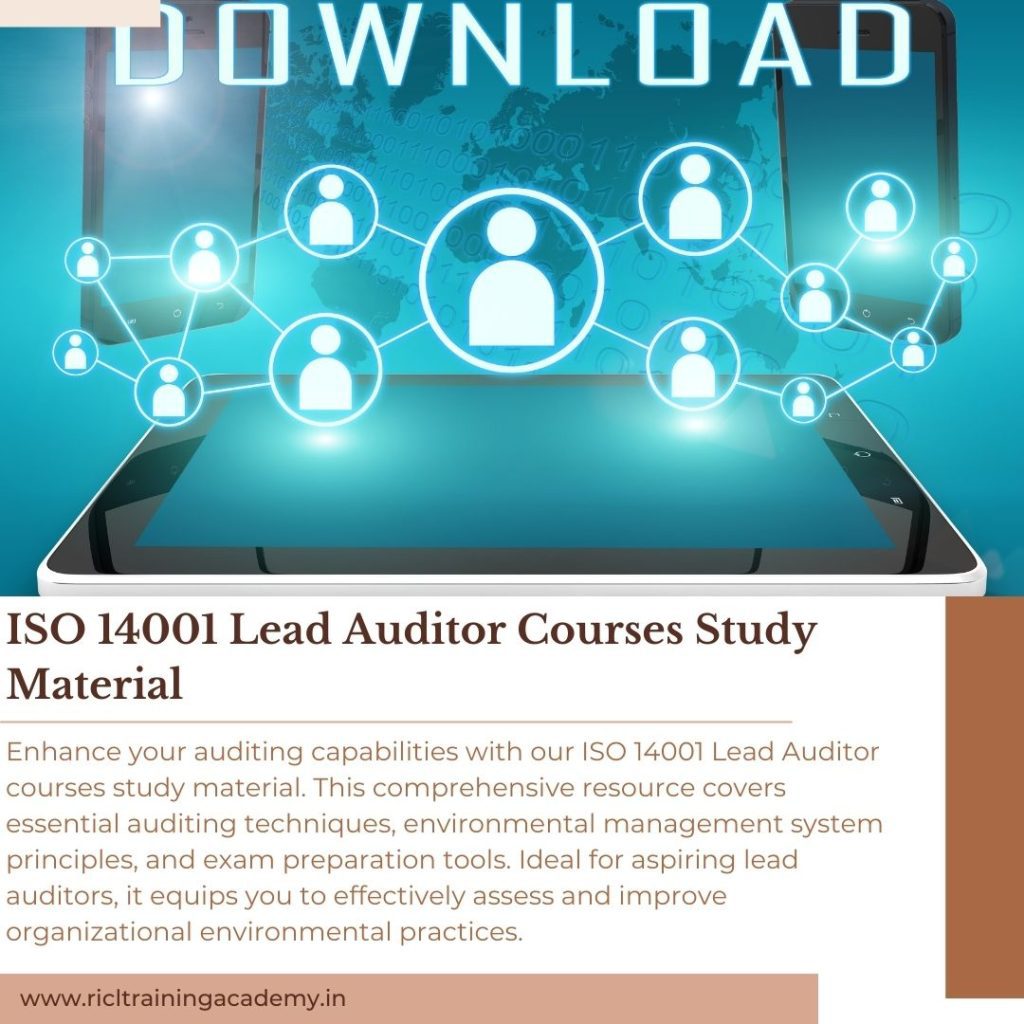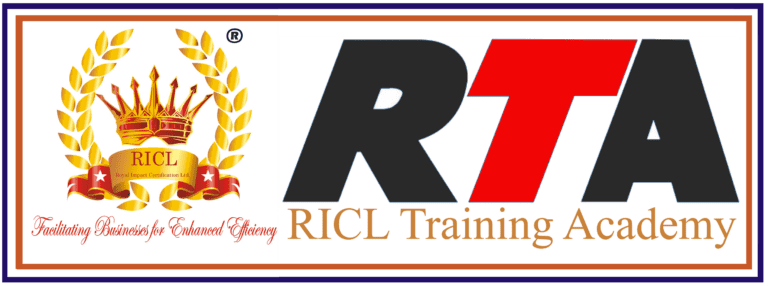Find comprehensive study materials for ISO 14001 Lead Auditor Courses. Equip yourself with the best resources for environmental management certification. ISO 14001 is an internationally accepted standard setting out a guideline to follow or a blueprint under which an organization can set up, implement, maintain, and improve an effective Environmental Management System
ISO 14001 Lead Auditor Courses Top Study Material

Brief on ISO 14001 and Environmental Management Systems
ISO 14001 is an internationally accepted standard setting out a guideline to follow or a blueprint under which an organization can set up, implement, maintain, and improve an effective Environmental Management System. This international standard, first published in 1996 and revised in 2015, supports organizations in the improvement of its environmental performance, including maintaining its vital environmental commitments, demonstrating accountability to stakeholders. ISO 14001 mainly focuses on reducing adverse environmental impacts along with the observance of the related legislation and regulations. The detailed knowledge of ISO 14001 will surely help the professionals to gain the lead auditor license.
Role of ISO 14001 Lead Auditor
Lead auditors will play a very significant role in evaluating the organization’s EMS effectiveness. They are expected to undertake planning, execution, and reporting of audits that assess compliances against the requirements of ISO 14001. The lead auditor’s role goes beyond just verification of compliance; they also have to find areas of improvement and promote best environmental management practices. Their services guarantee that organizations not only achieve legal and regulatory requirements but also strive toward continuous improvement of their environmental performance. The role of a lead auditor is highly important in installing a culture of sustainability and environmental responsibility.
Key Principles of ISO 14001
Laying the foundation for an effective Lead Auditor course requires knowledge of what constitutes the core principles of ISO 14001. These form the very foundation on which a soundly structured EMS may be developed:
Leadership: The top management shall be committed to the EMS through the provision of resources and creating an environmental responsibility culture.
Environmental Policy: The organization shall establish an environmental policy which expresses commitments on environmental management and compliance.
Risk-Based Thinking: An organization shall identify and assess environmental risks and opportunities which might affect negative impacts or enhance positive outcomes.
Continual Improvement: Provide a focus on continual improvement for improved environmental performance and attainment of organizational objectives.
Stakeholder Involvement: The stakeholders are the employees, customers, and the local community, and knowing the needs and expectations of the group helps an organization understand them
Compliance Obligation: Knowing relevant environmental laws, regulations, and other requirements to which the organization is subject to
Every possible lead auditor should know it.
Requirements of ISO 14001
ISO 14001 lays down various stipulations that an organization needs to meet to ensure its EMs operate effectively. The understanding of such requirements is crucial for lead auditors and covers:
Scope: The application of the standard to all organizations, whether large or small.
Normative References: Documents are supporting the application of the standard.
Terms and Definitions: The explanation of essential terms used throughout the standard.
Context of the organization: Organizations shall consider their internal and external context so that they can adapt their EMS accordingly
Leadership: It provides with the need for leadership and commitment of the organization to the EMS and environmental performance.
Planning: here, organizations shall identify aspects and evaluate impacts and determine objectives and targets.
Support: resourced, competence, awareness, communication and documented information, needed for the EMS.
Operation: An organization should design and operate processes to manage the environmental risks effectively.
Performance Evaluation: The performance of an EMS shall be checked through monitoring, measurement, analysis, and evaluation.
Improvement: Non-conformities shall be identified, and corrective actions shall be taken for organizations to continuously improve their EMS.
A deep understanding of such elements is basic for potential lead auditors
ISO 14001 Audit Process
The audit process for ISO 14001 is a systematic verification and involves the scrutiny of an organization’s EMS to appraise its conformance to the standard. Major steps involved in the audit process would include the following: Planning: Auditors shall draw up an audit plan that details the Audit Objectives, Audit Scope, and Audit Criteria. Preparation: This covers studying relevant documents such as the environmental policy, objectives, and previous audit results.
Auditors gather evidence from interviews, observations, and document reviews to establish the level of conformity with the elements contained under ISO 14001. Reporting: The findings are consolidated into an audit report and shall detail areas of conformity as well as areas of non-conformity. Follow-up: Recorded non-conformities should be rectified by organizations through the presentation of corrective actions that may be audited in follow-up audits. This knowledge is relevant for the execution of any audit, and more so, it outweighs that which is found in the study materials for lead auditor courses.
Competencies and skills of the Lead Auditor
To enable ISO 14001 Lead Auditors to manage their challenges professionally, the following are a few skills and competencies required from them:
Analytical Skills: With these, he will be in a position to analyze various complex environmental processes and identify areas where he can suggest improvements.
Communication Skills: He shall conduct communication orally and in writing; therefore, he shall be in need of good communication skills to write good reports and communicate with personnel
Interpersonal Skills: An auditor attains rapport with employees at junior and middle organization levels.
Attention to Detail: Observing keenly every detail in efforts to spot faults helps follow through adequately with the audit process.
Problem-Solving Skills: Ensuring that faults are effectively remedied and feasible solutions offered hence paving way for remedial measures to be taken in addressing the gaps identified in the audit process.
The skills listed above are few but can be nurtured with specific study and practice of processes through experience in the audit training process.
Benefits of ISO 14001 Certification
ISO 14001 certification has numerous benefits for organizations, among them:
These will be included better environmental performance where an efficient EMS of an organization can reduce its environmental impacts and increase sustainability.
Legal Compliance: ISO 14001 helps the organizations abide by the relevant environmental legislations. This, in turn, saves the organization from the risk of suffering any official sanctions.
Enhanced Organizational Image: Through certification the level of support for environmental responsibility will be verified, and the organization’s image in front of the stakeholders will be ameliorated.
Operational Efficiency: The systematic method of managing the environment leads to better processes, following which operational costs decrease.
Employee Involvement: Engagement of employees on environmental issues results in the development of a positive corporate culture and improved morale.
With such benefits accruing, organizations may be well encouraged towards ISO 14001 certification and may take up the importance of the lead auditor role seriously while doing so.
Conclusion
The ISO 14001 Lead Auditor course thus covers most of the essential study materials for students to take up an enviable career in environmental management. All these factors form the basis for realization of realization-based environmental management system success through personal contribution of all those individuals who comprehend the basic principles of ISO 14001, the standard and the requirements, audit process, and skill set requirements. A lead auditor makes a major contribution to inducing a certain level of sustainability that may come in handy in bringing about enhanced organizational performance and accountability. With much study and actual application of the concepts learned, trainee auditors will have much to say in the environmental stewardship of their respective organizations.
Lead Auditor & Internal Auditor Training: QMS, EMS, OHSMS + Awareness Courses
Refine your know-how in Quality Management Systems by taking our all-inclusive Lead Auditor QMS training course. We equip you with skills necessary for effective auditing as well as ensuring conformance with ISO standards. It is an excellent resource for people who want to become professionals in QMS auditing through detailed knowledge and practical information.”
Become a certified Lead Auditor in Environmental Management Systems with our specialized training course. This program offers necessary know-how and skills for conducting effective inspections while also promoting environmental compliance according to ISO regulations. The perfect opportunity for those looking to progress their career further into the realm of environmental management”
Pursue your career growth using our Lead Auditor OHSMS training course, which is tailored towards equipping you with the skills needed to undertake comprehensive evaluations of Occupational Health and Safety Management Systems. Obtain practical capabilities as well as experience that guarantee individual workplaces’ security conformity with the most recent ISO requirements”.
Our Internal Auditor QMS training can help you improve your auditing skills. This course covers the principles and practices necessary for conducting internal audits of Quality Management Systems. Ideal for professionals looking to increase their understanding of QMS and contribute to organizational excellence.
Our Internal Auditor EMS course will help you enhance your skills in environmental auditing. Learn techniques and standards needed to implement efficient internal audits of environmental management systems, ensuring ISO compliance and its environmental sustainability.
The purpose of our Internal Auditor OHSMS training is to equip you with the necessary skills to conduct effective internal audits. This course gives an extensive overview on how to audit Occupational Health & Safety Management Systems so that you can achieve compliance and create a safe workplace.
Hone your understanding of Quality Management Systems (QMS) through our Awareness Auditor QMS. These courses provide a basic understanding of the principles, benefits and implementation strategies of QMS making them instrumental for improving quality management practices by individuals or teams.
Familiarize yourself with essential knowledge regarding the Environmental Management Systems by exploring our Awareness Auditor EMS. The courses offer an overview of the principles of EMS which will help you comprehend environmental policies and procedures along with their importance in achieving sustainability targets.
Out training programs on Occupational Health and Safety Management Systems are meant to improve your awareness in this field. This course is intended for organizations and individuals, they provide essential information on OHSMS principles and practices that lead to safer and compliant work environments.
Other Blogs
- Adaptability Thrive in a Dynamic World
- Artistic Sense Elevate Expression & Drive Innovation
- Body Language A Key Form of Non-Verbal Communication
- Business Ethics: Upholding Integrity and Sustainability
- Business Etiquette Cultivating Professionalism and Success
- Business Trend Awareness Stay Ahead & Drive Success
- Collaboration Foster Synergy for Collective Success
- Competitiveness Driving Excellence & Superior Performance
- Conflict Resolution Navigate Tensions for Positive Results
- Crisis Management Strategic Response & Communication
- Critical Thinking Empower Strategic Decisions
- Customer Service Excellence: Fostering Relationships and Driving Success
- Customizing ISO Training for Different Industry Needs: A Tailored Approach
- Dealing with Difficult People Constructive Interaction Tips
- Decision Making: Strategies for Complex Environments
- Delegation Strategic Empowerment for Success
- Design Sense Inspire Creativity & Spark Innovation
- Diplomacy Navigate Relationships & Achieve Goals
- Disability Awareness Embracing Inclusion and Empowerment
- Dispute Resolution Foster Collaboration & Harmony
- Diversity Awareness Fostering Inclusion and Collaboration
- Empathy Enhance Understanding & Build Stronger Connections
- Entrepreneurial Thinking Cultivating Innovation and Initiative
- Facilitation Enhance Group Dynamics Effectively
- Feeling Stagnant in Your Career? Start Here
- Giving Feedback Bridging Performance Gaps Effectively
- Humor A Universal Aspect of Human Experience
- Inspiring Cultivate Authentic Leadership
- Interviewing Skills Effective Communication in Recruitment
- ISO 14001 Lead Auditor Courses PDF Download
- ISO 14001 Lead Auditor Courses Study Material
- ISO 14001: Environmental Management Training Essentials
- ISO 22301 Internal Auditor Courses Material Download
- ISO 22301 Lead Auditor Courses Fees
- ISO 22301 Lead Auditor Courses Material Download
- ISO 22301 Lead Auditor Courses PDF Download
- ISO 30000 Internal Auditor Courses Material Download
- ISO 37001 Lead Auditor Courses PDF Download
- ISO 37001 Lead Auditor Courses Study Material
- ISO 41001 Internal Auditor Courses Material Download
- ISO 41001 Lead Auditor Courses Material Download
- ISO 41001 Lead Auditor Courses PDF Download
- ISO 41001 Lead Auditor Courses Study Material
- ISO 45001 Internal Auditor Courses Material Download
- ISO 45001 Lead Auditor Courses Fees
- ISO 45001 Lead Auditor Courses Material Download
- ISO 45001 Lead Auditor Courses PDF Download
- ISO 45001 Lead Auditor Courses Study Material
- ISO 50001 Internal Auditor Courses Material Download
- ISO 50001 Lead Auditor Courses Fees
- ISO 50001 Lead Auditor Courses Material Download
- ISO 50001 Lead Auditor Courses PDF Download
- ISO 50001 Lead Auditor Courses Study Material
- ISO 50001 Energy Management Training for Sustainability
- ISO 9001 Certification A Comprehensive Training Guide
- ISO 9001 Internal Auditor Courses Material Download
- ISO 9001 Lead Auditor Certificate Course
- ISO 9001 Lead Auditor Certification in India
- ISO 9001 Lead Auditor Courses Benefits
- ISO 9001 Lead Auditor Courses Cost
- ISO 9001 Lead Auditor Courses Exam Question and Answers
- ISO 9001 Lead Auditor Courses Fees
- ISO 9001 Lead Auditor Courses Fees
- ISO 9001 Lead Auditor Courses Fees in Chennai,Noida,Delhi
- ISO 9001 Lead Auditor Courses PDF Download
- ISO 9001 Lead Auditor Courses Study Material
- ISO Certification in Delhi NCR
- ISO Certification in India
- ISO Certification in Noida
- ISO Full Form
- ISO Lead Auditor Training Near Noida
- ISO Training for New Employees: Onboarding and Integration Best Practices
- Latest ISO Training Courses & Certificates
- Lead Auditor Certification
- Lead Auditor Course
- Lead Auditor ISO 14001 Course
- Lead Auditor ISO 22000 Course
- Lead Auditor ISO 45001 Course
- Lead Auditor ISO 9001 Course
- Lead Auditor Online Courses
- Lead Auditor Salary
- Lead Auditor Training
- Lead Auditor Training Provider in Delhi
- Lead Auditor Training Provider in India
- Lead Auditor Training Provider in Noida
- Listening The Cornerstone of Effective Communication
- Adaptability Thrive in a Dynamic World
- Artistic Sense Elevate Expression & Drive Innovation
- Body Language A Key Form of Non-Verbal Communication
- Business Ethics: Upholding Integrity and Sustainability
- Business Etiquette Cultivating Professionalism and Success
- Business Trend Awareness Stay Ahead & Drive Success
- Collaboration Foster Synergy for Collective Success
- Competitiveness Driving Excellence & Superior Performance
- Conflict Resolution Navigate Tensions for Positive Results
- Crisis Management Strategic Response & Communication
- Critical Thinking Empower Strategic Decisions
- Customer Service Excellence: Fostering Relationships and Driving Success
- Customizing ISO Training for Different Industry Needs: A Tailored Approach
- Dealing with Difficult People Constructive Interaction Tips
- Decision Making: Strategies for Complex Environments
- Delegation Strategic Empowerment for Success
- Design Sense Inspire Creativity & Spark Innovation
- Diplomacy Navigate Relationships & Achieve Goals
- Disability Awareness Embracing Inclusion and Empowerment
- Dispute Resolution Foster Collaboration & Harmony
- Diversity Awareness Fostering Inclusion and Collaboration
- Empathy Enhance Understanding & Build Stronger Connections
- Entrepreneurial Thinking Cultivating Innovation and Initiative
- Facilitation Enhance Group Dynamics Effectively
- Feeling Stagnant in Your Career? Start Here
- Giving Feedback Bridging Performance Gaps Effectively
- Humor A Universal Aspect of Human Experience
- Inspiring Cultivate Authentic Leadership
- Interviewing Skills Effective Communication in Recruitment
- ISO 14001 Lead Auditor Courses PDF Download
- ISO 14001 Lead Auditor Courses Study Material
- ISO 14001: Environmental Management Training Essentials
- ISO 22301 Internal Auditor Courses Material Download
- ISO 22301 Lead Auditor Courses Fees
- ISO 22301 Lead Auditor Courses Material Download
- ISO 22301 Lead Auditor Courses PDF Download
- ISO 30000 Internal Auditor Courses Material Download
- ISO 37001 Lead Auditor Courses PDF Download
- ISO 37001 Lead Auditor Courses Study Material
- ISO 41001 Internal Auditor Courses Material Download
- ISO 41001 Lead Auditor Courses Material Download
- ISO 41001 Lead Auditor Courses PDF Download
- ISO 41001 Lead Auditor Courses Study Material
- ISO 45001 Internal Auditor Courses Material Download
- ISO 45001 Lead Auditor Courses Fees
- ISO 45001 Lead Auditor Courses Material Download
- ISO 45001 Lead Auditor Courses PDF Download
- ISO 45001 Lead Auditor Courses Study Material
- ISO 50001 Internal Auditor Courses Material Download
- ISO 50001 Lead Auditor Courses Fees
- ISO 50001 Lead Auditor Courses Material Download
- ISO 50001 Lead Auditor Courses PDF Download
- ISO 50001 Lead Auditor Courses Study Material
- ISO 50001 Energy Management Training for Sustainability
- ISO 9001 Certification A Comprehensive Training Guide
- ISO 9001 Internal Auditor Courses Material Download
- ISO 9001 Lead Auditor Certificate Course
- ISO 9001 Lead Auditor Certification in India
- ISO 9001 Lead Auditor Courses Benefits
- ISO 9001 Lead Auditor Courses Cost
- ISO 9001 Lead Auditor Courses Exam Question and Answers
- ISO 9001 Lead Auditor Courses Fees
- ISO 9001 Lead Auditor Courses Fees
- ISO 9001 Lead Auditor Courses Fees in Chennai,Noida,Delhi
- ISO 9001 Lead Auditor Courses PDF Download
- ISO 9001 Lead Auditor Courses Study Material
- ISO Certification in Delhi NCR
- ISO Certification in India
- ISO Certification in Noida
- ISO Full Form
- ISO Lead Auditor Training Near Noida
- ISO Training for New Employees: Onboarding and Integration Best Practices
- Latest ISO Training Courses & Certificates
- Lead Auditor Certification
- Lead Auditor Course
- Lead Auditor ISO 14001 Course
- Lead Auditor ISO 22000 Course
- Lead Auditor ISO 45001 Course
- Lead Auditor ISO 9001 Course
- Lead Auditor Online Courses
- Lead Auditor Salary
- Lead Auditor Training
- Lead Auditor Training Provider in Delhi
- Lead Auditor Training Provider in India
- Lead Auditor Training Provider in Noida
- Listening The Cornerstone of Effective Communication

TESTIMONIALS
What Our Cutomers are Saying About us

Ruis aute irure dolor in reprehender voluptate velit esse cillum dolore fugiat pariatur sint occaecat cupidata non proie sunt in culpa aui officede









Reach us at:
info@ricltrainingacademy.in
support@ricltrainingacademy.in
sales@ricltrainingacademy.in
complaint@ricltrainingacademy.in
Call us at:
9355650992
9355650993
Visit us at:
Royal Impact Certification Limited
623 Tower -B, The Ithum Sector – 62, Noida, 201301.
Copyright © 2024 RICL Training Academy Team


